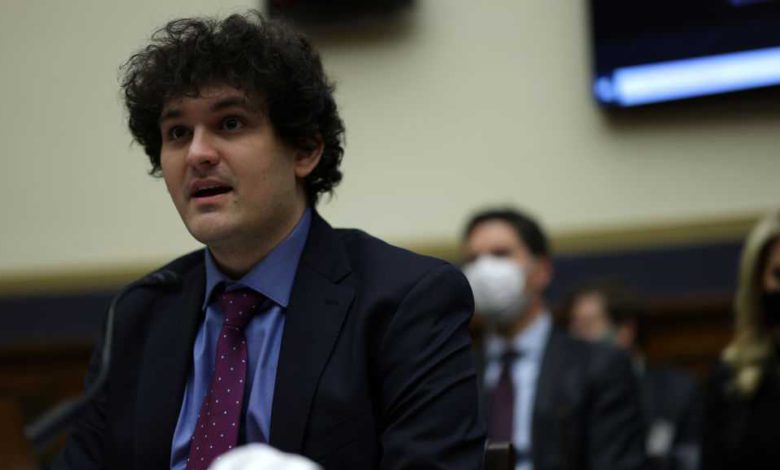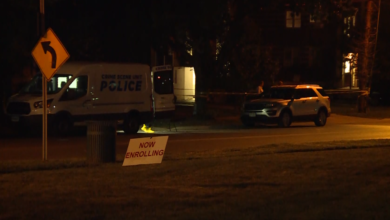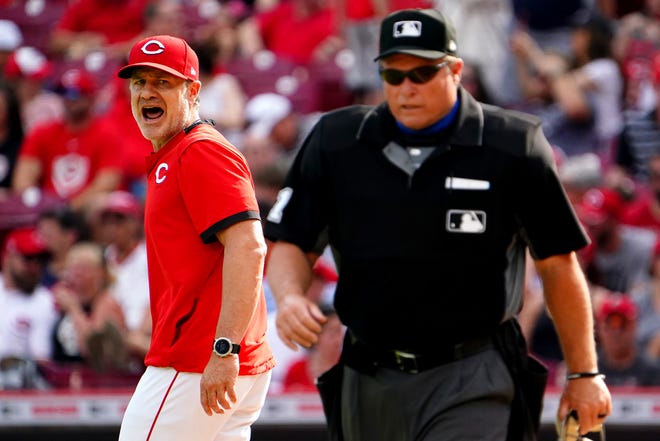

Sam Bankman-Fried, the founder of the failed crypto exchange FTX, has agreed to testify before the Senate Banking Committee next week as questions and confusion swirl about the collapse of his companies.On Friday, he tweeted that he's "willing to testify on (Dec.) 13th" and said he will "try to be helpful, and to shed what like I can" about several of lawmakers' concerns, including FTX US' solvency, "pathways" that could return "value" to users, what he thinks about what led to the crash, and, finally, his "own failings.""I had thought of myself as a model CEO, who wouldn't become lazy or disconnected," Bankman-Fried wrote on Twitter. "Which made it that much more destructive when I did. I'm sorry. Hopefully people can learn from the difference between who I was and who I could have been."His tweets are in response to a demand from several members of Congress who demanded testimony.Democratic chairman Sen. Sherrod Brown of Ohio and Republican Sen. Pat Toomey of Pennsylvania have asked him to appear because of "significant unanswered questions" surrounding the collapse of FTX and its sister hedge fund, Alameda, both of which filed for bankruptcy on Nov. 11."You must answer for the failure of both entities that was caused, at least in part, by the clear misuse of client funds and wiped out billions of dollars owed to over a million creditors," the senators wrote.Initially, It wasn't clear whether Bankman-Fried would comply. Bankman-Fried had tweeted Sunday that he felt he had a "duty to appear before the committee and explain," but he was unsure of the timing.Separately, Sens. Elizabeth Warren of Massachusetts and Tina Smith of Minnesota, both Democrats, sent letters to three regulators -- the Federal Reserve, the Federal Deposit Insurance Corporation and the Office of the Comptroller of the Currency -- asking them to assess the traditional banking system's exposure to turmoil in the crypto space, a largely unregulated, parallel financial system."Crypto firms may have closer ties to the banking system than previously understood," Warren and Smith wrote. "Banks' relationships with crypto firms raise questions about the safety and soundness of our banking system and highlight potential loopholes that crypto firms may try to exploit to gain further access."Investigating FTXFederal prosecutors are investigating the collapse of FTX, an exchange that marketed itself as a beginner-friendly way to get involved in what was, until recently, a booming if highly volatile market for digital assets. FTX also facilitated high-risk leveraged trading that wasn't allowed inside the United States. (The firm was based in The Bahamas.)FTX was one of the biggest crypto exchanges in the world until last month when it faced a sudden wave of customer withdrawals that it couldn't cover. One of the key questions prosecutors are likely to probe is whether FTX misappropriated customer funds when it made loans to Alameda.Bankman-Fried has denied accusations of misusing customer deposits. "I didn't knowingly commingle funds," he told The New York Times last week. "I was frankly surprised by how big Alameda's position was."Federal prosecutors are also investigating whether Bankman-Fried played a role in the collapse this spring of two interlinked cryptocurrencies, Terra and Luna, according to the New York Times, which cited two people familiar with the matter.The Times said the issue is part of a broadening inquiry into the collapse of FTX, and it's not clear whether prosecutors have determined any wrongdoing by Bankman-Fried.In a statement to the paper, Bankman-Fried said he was "not aware of any market manipulation and certainly never intended to engage in market manipulation."
Sam Bankman-Fried, the founder of the failed crypto exchange FTX, has agreed to testify before the Senate Banking Committee next week as questions and confusion swirl about the collapse of his companies.
On Friday, he tweeted that he's "willing to testify on (Dec.) 13th" and said he will "try to be helpful, and to shed what like I can" about several of lawmakers' concerns, including FTX US' solvency, "pathways" that could return "value" to users, what he thinks about what led to the crash, and, finally, his "own failings."
"I had thought of myself as a model CEO, who wouldn't become lazy or disconnected," Bankman-Fried wrote on Twitter. "Which made it that much more destructive when I did. I'm sorry. Hopefully people can learn from the difference between who I was and who I could have been."
His tweets are in response to a demand from several members of Congress who demanded testimony.
Democratic chairman Sen. Sherrod Brown of Ohio and Republican Sen. Pat Toomey of Pennsylvania have asked him to appear because of "significant unanswered questions" surrounding the collapse of FTX and its sister hedge fund, Alameda, both of which filed for bankruptcy on Nov. 11.
"You must answer for the failure of both entities that was caused, at least in part, by the clear misuse of client funds and wiped out billions of dollars owed to over a million creditors," the senators wrote.
Initially, It wasn't clear whether Bankman-Fried would comply. Bankman-Fried had tweeted Sunday that he felt he had a "duty to appear before the committee and explain," but he was unsure of the timing.
Separately, Sens. Elizabeth Warren of Massachusetts and Tina Smith of Minnesota, both Democrats, sent letters to three regulators -- the Federal Reserve, the Federal Deposit Insurance Corporation and the Office of the Comptroller of the Currency -- asking them to assess the traditional banking system's exposure to turmoil in the crypto space, a largely unregulated, parallel financial system.
"Crypto firms may have closer ties to the banking system than previously understood," Warren and Smith wrote. "Banks' relationships with crypto firms raise questions about the safety and soundness of our banking system and highlight potential loopholes that crypto firms may try to exploit to gain further access."
Investigating FTX
Federal prosecutors are investigating the collapse of FTX, an exchange that marketed itself as a beginner-friendly way to get involved in what was, until recently, a booming if highly volatile market for digital assets. FTX also facilitated high-risk leveraged trading that wasn't allowed inside the United States. (The firm was based in The Bahamas.)
FTX was one of the biggest crypto exchanges in the world until last month when it faced a sudden wave of customer withdrawals that it couldn't cover. One of the key questions prosecutors are likely to probe is whether FTX misappropriated customer funds when it made loans to Alameda.
Bankman-Fried has denied accusations of misusing customer deposits. "I didn't knowingly commingle funds," he told The New York Times last week. "I was frankly surprised by how big Alameda's position was."
Federal prosecutors are also investigating whether Bankman-Fried played a role in the collapse this spring of two interlinked cryptocurrencies, Terra and Luna, according to the New York Times, which cited two people familiar with the matter.
The Times said the issue is part of a broadening inquiry into the collapse of FTX, and it's not clear whether prosecutors have determined any wrongdoing by Bankman-Fried.
In a statement to the paper, Bankman-Fried said he was "not aware of any market manipulation and certainly never intended to engage in market manipulation."









